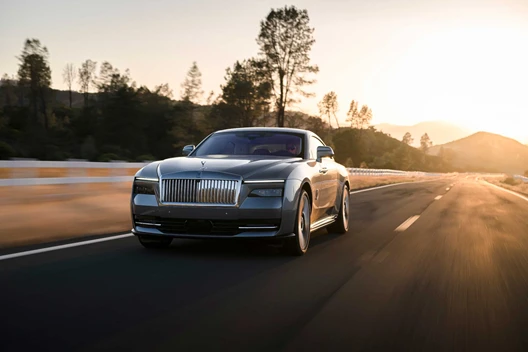Will Hydrogen Cars Become Mainstream in 2025?
The automotive industry is constantly evolving, with innovations that promise to change the way we drive. One such innovation is hydrogen-powered vehicles, which have generated significant interest as a potential alternative to traditional gasoline and diesel vehicles. As we approach 2025, a crucial question arises: Will hydrogen cars become mainstream?
While electric vehicles (EVs) have already made a substantial impact in the market, hydrogen cars are still in the early stages of development. Despite their promise, hydrogen-powered vehicles face several challenges that hinder their widespread adoption. In this blog post, we’ll explore the potential of hydrogen cars, their benefits, challenges, and what the future holds for this exciting technology.
The Rise of Hydrogen Cars: What Makes Them Special?
Hydrogen cars, also known as fuel cell vehicles (FCVs), operate by using a chemical process called electrochemical conversion. In simple terms, hydrogen is stored in a tank and combined with oxygen from the air in a fuel cell to produce electricity. The only byproduct is water vapor, which makes hydrogen cars a zero-emission alternative to traditional vehicles powered by internal combustion engines.
Key Benefits of Hydrogen Cars:
- Fast refueling times: Unlike electric vehicles, which can take several hours to recharge, hydrogen cars can be refueled in just a few minutes, making them more convenient for long-distance travel.
- Longer range: Hydrogen vehicles generally offer a driving range similar to gasoline-powered cars, which is an appealing feature for consumers who need to drive long distances regularly.
- Clean emissions: Hydrogen fuel cells produce no harmful emissions, making them an environmentally friendly alternative that can help reduce air pollution and carbon emissions.

The Current State of Hydrogen Cars
While hydrogen-powered vehicles are not as widespread as electric vehicles, several major automakers are investing heavily in this technology. For example, Toyota’s Mirai, Hyundai’s Nexo, and Honda’s Clarity Fuel Cell are some of the most well-known hydrogen-powered cars on the market. These models offer impressive ranges, quick refueling times, and the promise of clean driving. However, the adoption of hydrogen cars remains relatively limited, and they are still seen as niche products rather than mainstream options.
Challenges Facing Hydrogen Cars:
- Lack of Refueling Infrastructure: Hydrogen refueling stations are still scarce compared to EV charging stations, which limits the convenience of owning a hydrogen car. Expanding the network of refueling stations is crucial to making hydrogen cars more practical for everyday use.
- High Production Costs: Hydrogen fuel cell technology is still expensive, which makes hydrogen-powered vehicles costlier than traditional gas-powered or electric vehicles. Although the costs are expected to decrease with mass production and advancements in technology, hydrogen cars are still considered premium vehicles.
- Hydrogen Production: The majority of hydrogen is produced using natural gas in a process that emits carbon. For hydrogen cars to truly become an environmentally friendly alternative, the production of hydrogen needs to be sustainable and come from renewable sources like solar or wind energy.

Will Hydrogen Cars Become Mainstream by 2025?
Looking ahead, several factors will play a role in determining whether hydrogen cars can become mainstream by 2025. Government policies, technological advancements, and consumer demand will all influence the trajectory of hydrogen vehicles.
Government Support:
Governments worldwide are beginning to see the potential of hydrogen as a clean energy source and are starting to implement policies to support the development of hydrogen vehicles and refueling infrastructure. In countries like Japan, Germany, and South Korea, governments are investing in hydrogen research and offering incentives to consumers who purchase hydrogen vehicles.
Technological Advancements:
Technological progress will be essential for hydrogen cars to become more affordable and practical. Advances in hydrogen fuel cell technology could lower production costs, improve fuel efficiency, and increase the durability of fuel cells. Furthermore, the development of more sustainable methods of hydrogen production will make these vehicles even more attractive to environmentally conscious consumers.
The Future of Hydrogen Cars: What Does 2025 Hold?
As we approach 2025, it is unlikely that hydrogen cars will completely replace electric vehicles or gasoline-powered cars in the mass market. However, with continued investment from automakers and governments, hydrogen-powered vehicles may carve out a niche for themselves, especially in regions with access to a robust refueling infrastructure. Countries like Japan and parts of California are already seeing some success with hydrogen cars, and the expansion of refueling stations could make them more viable for mainstream consumers in the coming years.
Moreover, hydrogen-powered trucks and buses are already being used in some parts of the world, where their ability to travel long distances without refueling for hours is highly valued. This could be a stepping stone towards the wider adoption of hydrogen technology.
Conclusion: Are Hydrogen Cars the Future?
Hydrogen cars have the potential to play a significant role in the future of transportation, but it’s unlikely they will become mainstream by 2025. However, as technology improves, infrastructure expands, and government support continues to grow, hydrogen-powered vehicles could become a common sight on the roads in the near future. While they may not overtake electric vehicles in the short term, hydrogen cars are a promising solution for reducing carbon emissions and offering consumers more sustainable transportation options.


Auto Blue Albania
AdministratorWelcome to Auto Blue Albania, your trusted destination for high-quality second-hand vehicles. Located in the heart of Albania, we specialize in connecting car enthusiasts and everyday drivers with reliable, well-maintained, and competitively priced used cars. With years of experience in the automotive industry, we understand the importance of finding a car that suits your lifestyle and budget.










